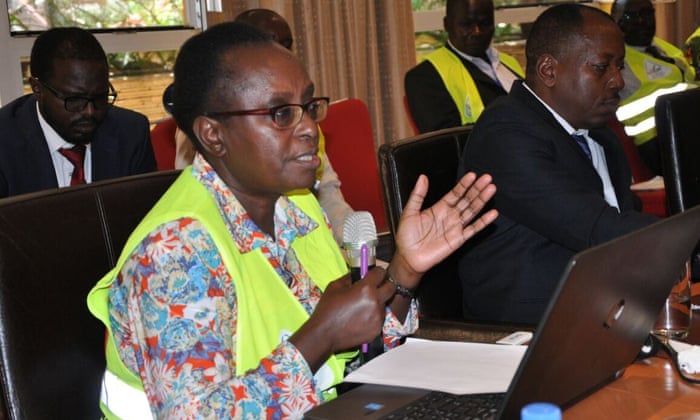
A Kenyan doctor has been accused of “trying to make history” after
filing a controversial petition to legalise female genital mutilation.
Dr Tatu Kamau, who has held a number of high-level positions at the
Ministry of Health, told a high court that Kenya’s 2011 ban on FGM was
unconstitutional and discriminated against “national heritage”.
Kamau claimed that women who choose to harm their bodies through
drink or cigarettes should also have the freedom to decide whether they
are cut.
“If women can decide to drink, to smoke, women can join the army,
women can do all sorts of things that might bring them harm or injury … a
woman can [also] make that decision,” she told KTN News after filing papers to overturn the ban.
“And once she has made that decision, she should be able to access the best medical care to have it done.”
Kenya
outlawed the long-standing practice in 2011. Sweeping provisions made
it illegal to carry out or help someone to procure FGM. Failure to
report the practice, or stigmatising a woman – or any man who marries or
supports her – for not undergoing the procedure were also banned.
Causing death by performing FGM became punishable with life imprisonment
and a fine of 200,000 Kenyan shillings (£1,372).
According to the UN population fund (UNFPA), 21% of girls and women in Kenya aged 15-49 have undergone FGM.
But the ban has pushed the practice further underground.
FGM, which usually requires the partial or total removal of the clitoris and labia minora and majora, is almost always performed without anasthesia by traditional cutters,
often using unsterilised blades. Those subjected to the practice can
bleed to death or die from infection, or experience serious
complications during childbirth.
While Kamau’s petition to outlaw the practice has been met with contempt
by local and international FGM activists, some tribal elders from
Kenya’s Marakwet district have welcomed the move, claiming that they had
been “hunted and punished for engaging in our cultural right”.
Maasai FGM activist Agnes Pareyio, who was cut at 14 against her will and has since founded the Tasaru Ntomonok Initiative
to educate women and girls about the practice, said Kamau’s petition –
expected to be heard by Machakos high court in eastern Kenya on 26
February – was an insult to women as it proved the doctor did not
understand the brutality behind the practice.
“I am a survivor and I know the extent of the pain that women go
through with FGM – it is a violation of our human rights,” Pareyio said.
“Many women still think this is a process they must go through, but
when you explain that not every woman is cut, not every society does
this, they question why we do it. How can you try to legalise something
that kills women? I think [Kamau] is trying to make history.”
Brendan Wynne, of Donor Direct Action,
an international women’s group that runs an FGM fund for frontline
activists, said it was potentially dangerous for a female doctor of such
high standing in Kenyan society to take such legal action.
“The
fact that a doctor is calling for an extremely harmful human rights
abuse to be made legal is incredible. She clearly has no idea about the
implications for women and girls,” said Wynne.
“We can’t afford to waste time opening up this debate again while so
many millions of girls are still at risk. African women on the front
lines need to be supported instead in their efforts to end FGM once and
for all.”
FGM – which affects 200 million women around the world – is still extremely prevalent in certain parts of Kenya, particularly among the Kisii, Maasai, Samburu and Somali communities (pdf), where some girls are cut before the age of five.
Campaigners argue that the ban enables girls to reject a practice often forced upon them by their parents or elders.
“Women’s bodies should be valued and respected,” said Josephine Carlsson of Feed the Minds, a charity working to end FGM through education and awareness programmes with the Kuria group in Kenya.
“The fact that FGM is illegal and remains illegal is an important
message from society and has already brought the prevalence of FGM down
in Kenya, but more work needs to be done to change attitudes, which this
debate only illustrates too well. Our partners on the ground fully
support the legislation and are absolutely convinced FGM must remain
illegal in order to protect women from violence.”




No comments:
Post a Comment